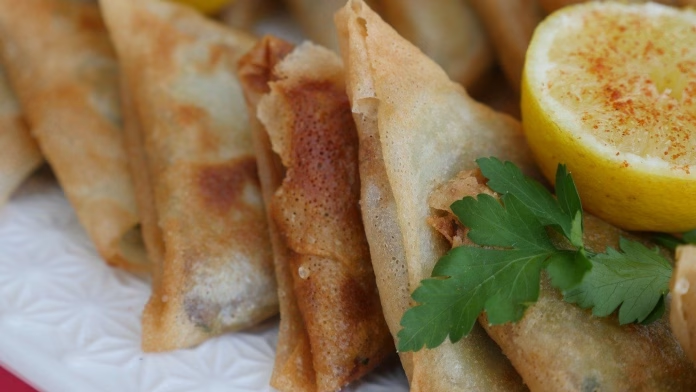Dinner, as one of the most important meals of the day, plays a crucial role in our overall well-being. Indian cuisine, renowned for its rich flavors and diverse culinary traditions, offers a myriad of delightful dishes that tantalize our taste buds. From the aromatic spices of Chicken Curry to the fragrant basmati rice in Biryani and the creamy textures of Navratan Korma, the choices are endless. However, health experts are now cautioning against the habit of indulging in heavy meals late at night, particularly after 8 PM, as it can have detrimental effects on our physical and digestive health. Ayurveda, the ancient Indian system of medicine, has long emphasized the importance of an early dinner for optimal digestion, sound sleep, and improved overall well-being.
In this article, we delve into the risks associated with consuming certain Indian foods beyond 8 PM, shedding light on the potential consequences and offering alternative options to satisfy those late-night cravings in a healthier way. While it is understandable to feel hungry or have a desire for a scrumptious meal during the late hours, it is essential to make informed choices that support our health goals.
- Spicy Foods: India, known for its diverse spices, presents a range of tantalizing dishes that we all relish. From the fiery Laal Maas to the piquant Vindaloo and the flavorsome Kolhapuri Chicken, spices are an integral part of Indian cuisine, often paired with steamed rice or bread like Naan and Paratha. However, consuming spicy foods late at night can trigger severe heartburn. Moreover, such dishes often contain excessive amounts of oil and ghee, which can lead to heart problems. Additionally, the presence of spices confuses the body as they are known to boost metabolism, potentially disrupting sleep patterns.
- Fritters (Pakora): Pakoras, with their enticing flavors, can make anyone’s mouth water. However, consuming these deep-fried delights after 8 pm can result in stomach irritability and disrupt sleep patterns. The high acidity of deep-fried pakoras poses challenges to nighttime digestion, further interfering with a restful slumber.
- Caffeinated Beverages: Caffeine, a widely recognized stimulant, is often consumed to combat drowsiness after a good night’s sleep. However, indulging in caffeinated beverages such as tea, coffee, or green tea can disrupt deep sleep, thereby negatively impacting overall health. It is advisable to avoid such drinks after 6 pm. Instead, consider alternatives like juice or a small serving of chocolate to satisfy cravings.
- Sweets: While it is customary in Indian culture to enjoy some meetha (sweet) after a hearty meal, consuming sweets after 8 pm can disrupt the body’s sleep pattern and trigger further food cravings. Contrary to popular belief, sweets do not aid digestion but act as stimulants, potentially keeping individuals awake throughout the night.
- Mutton Biryani: Mutton Biryani, often regarded as an irresistible dish, carries significant calorie and fat content. Despite its nutritional drawbacks, the allure of Biryani often leads to overindulgence. Experts warn that consuming calorie-dense and high-fat dishes like Mutton Biryani can contribute to the prevalence of Non-Alcoholic Fatty Liver Disease (NAFLD), a rising health concern in India. Even a small serving of Mutton Biryani contains approximately 500-700 calories, inadvertently contributing to excess calorie intake.
While Indian cuisine offers an extensive array of mouthwatering delicacies, it is crucial to exercise caution and mindfulness regarding our food choices, particularly during late evening hours. Indulging in heavy, spicy, and high-fat foods after 8 pm can result in adverse effects on digestion, sleep quality, and overall health. Opting for lighter alternatives like Khichdi, milk with dates or almonds, or grilled vegetables promotes better sleep and aids digestion. By making conscious decisions about our late-night food intake, we can pave the way for a healthier lifestyle and a restful night’s sleep.



